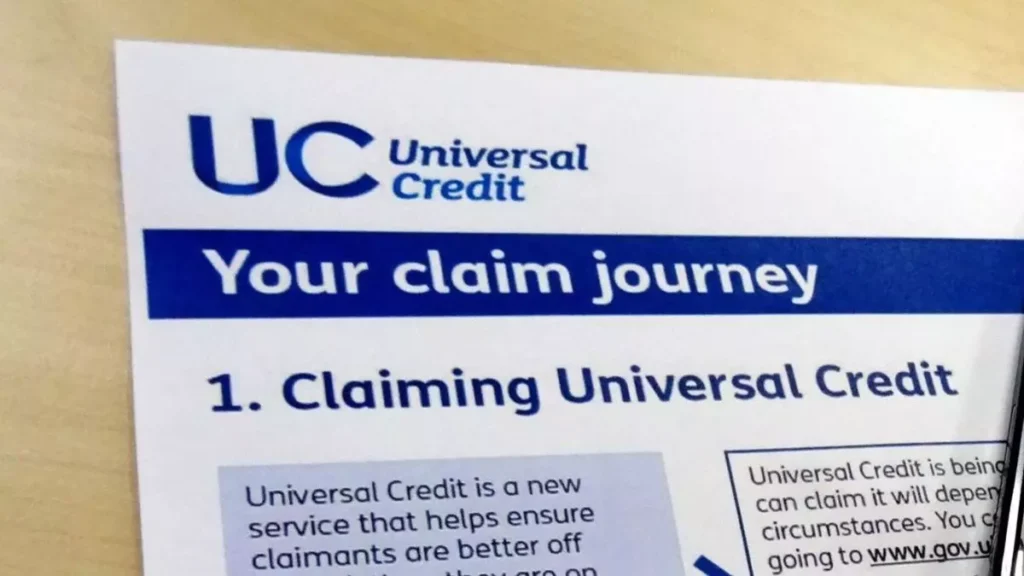Millions of Universal Credit claimants across the UK are set to receive a significant financial boost as the Department for Work and Pensions (DWP) has confirmed an increase of £775 per year. The uplift, which takes effect from April 2026, aims to support low-income households amid the rising cost of living.
What is Changing in Universal Credit?
Starting in April 2026, the standard allowance for Universal Credit for a single claimant aged 25 and over will increase from £91 per week to £98 per week. This equates to a total increase of £775 per year, giving claimants much-needed financial relief.
The increase is part of a broader set of welfare reforms announced by the government to ensure benefits keep pace with inflation while also encouraging employment among claimants.

Who Will Benefit From the Increase?
The new payment structure will benefit millions of people who rely on Universal Credit, including:
- Single adults over 25 – will receive an increase in their standard allowance.
- Couples and families – additional increases may apply depending on household circumstances.
- Disabled claimants – further changes are expected to impact those receiving disability-related benefits.
If you are a current Universal Credit claimant, you will automatically receive the increased payments in your regular benefit cycle.
Key Reforms in the Welfare System
Alongside the Universal Credit uplift, the UK government is implementing major reforms to the benefits system, including:
1. Phasing Out of the Work Capability Assessment (WCA)
The DWP has confirmed that by 2028, the Work Capability Assessment (WCA) will be abolished. Instead, eligibility for financial support related to health conditions will be assessed through the Personal Independence Payment (PIP) framework.
2. New Disability Premium for Long-Term Illness
A new Severe Disability Premium will be introduced to provide additional financial support to individuals with severe, lifelong conditions who are unable to work. This change aims to create a fairer system that better supports those who need long-term financial assistance.
3. Increased Support for Young People Seeking Work
The government has pledged additional funds to the Youth Guarantee Scheme, which will help young jobseekers access employment or training opportunities. The scheme aims to reduce youth unemployment and provide essential career support.
Why is Universal Credit Increasing?
The £775 annual increase is part of the government’s long-term strategy to make benefits more sustainable and supportive. The move comes as inflation has eroded the purchasing power of welfare payments, leaving many struggling to cover basic living expenses.
The government has also faced mounting pressure from advocacy groups and MPs, who have been calling for stronger financial assistance for low-income families.
When Will You Receive the Increased Payment?
The new Universal Credit rates will take effect from April 2026. If you are already receiving Universal Credit, the increase will be automatically reflected in your payments. No additional application is required.
How to Check Your Universal Credit Entitlement?
If you are unsure how much you are eligible to receive under the new rates, you can check your entitlement on the official DWP website: www.gov.uk/universal-credit
Additionally, you can use the government’s benefits calculator to see how the new increase affects your payments: www.gov.uk/benefits-calculators

Reactions to the Universal Credit Increase
The announcement has received mixed reactions. While many claimants have welcomed the additional support, some advocacy groups argue that the increase does not go far enough to address the rising costs of essentials like food, energy, and rent.
“This increase is a step in the right direction, but more comprehensive action is needed to ensure people on low incomes are not left behind,” said a spokesperson from Child Poverty Action Group.
Meanwhile, government officials have defended the increase, stating that it balances the need for social support with fiscal responsibility.
What Should Universal Credit Claimants Do Now?
If you are currently receiving Universal Credit or considering applying, here’s what you should do:
- Stay updated – Regularly check the DWP website for any changes or updates to the payment schedule.
- Check eligibility – Use online benefits calculators to understand how the changes impact your payments.
- Plan ahead – If you rely on Universal Credit for essential expenses, budget accordingly to account for the increase in payments starting in 2026.
- Seek advice if needed – If you have concerns about your benefits, contact Citizens Advice (www.citizensadvice.org.uk) for free guidance.
Final Thoughts
The £775 annual increase in Universal Credit will provide much-needed financial relief to millions of claimants. While it is a welcome change, many continue to call for further reforms to address the financial challenges faced by low-income households.
As the UK government moves forward with its welfare overhaul, claimants should stay informed and prepared for any additional policy shifts in the coming years. For official updates, visit the DWP Universal Credit page: www.gov.uk/universal-credit.
This article has been carefully fact-checked by our editorial team to ensure accuracy and eliminate any misleading information. We are committed to maintaining the highest standards of integrity in our content.


